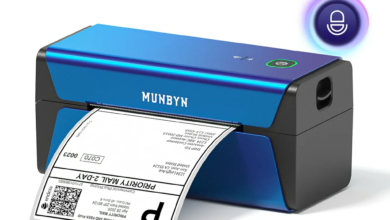Understanding Features and Benefits of Loan Against Shares

When there is a need for short-term funds and one does not want to sell investments, a Loan Against Shares may be considered. This credit facility allows one to borrow capital against their shares as collateral without having to sell them. It helps in retaining ownership while at the same time offering liquidity for various financial requirements. However, before one considers this credit facility, one should know its main features and the benefits. This article explains those features and helps you understand the benefits of taking a loan against shares.
What is a Loan Against Shares?
A Loan Against Shares (LAS) is a collateralised facility of credit where listed equity shares are mortgaged as security to a bank or financial institution. In exchange, the lender provides a credit facility or loan equivalent to a specified percentage of the market value of the shares. The shares are maintained in the demat account but are under lien in the name of the lender.
The loan is usually in the form of an overdraft facility or a term loan. It is usually used to meet business needs, personal expenses, or emergency needs, thus allowing individuals to avoid selling their equity investments.
Key Characteristics of a Loan Against Shares
A clear understanding of the LAS structure and how it works can assist you in deciding whether it aligns with your budget. The following key features of a loan against shares must be remembered.
- Collateral-Based Loan: You are required to pledge approved listed shares under your demat account. The lender provides a loan according to the prevailing market value of these shares, which may be between 50% to 60%.
- Multi-purpose Use: The borrowed funds can be utilised for personal or business purposes. However, they cannot be used for hedging or speculative purposes. Furthermore, they cannot be used for investment in the capital markets.
- Overdraft Facility Option: Certain lenders provide a Loan Against Securities (LAS) as an overdraft facility. Interest is paid only on the utilised amount and not on the total sanctioned amount.
- Loan Size and Term: The amount of loans may vary with the value of shares and lending policies. The term may range from three months to thirty-six months or even more.
- Swift Disbursal: Since the collateral is already being held in your account, the loan approval and disbursement process can be swift in comparison to other secured loans.
See also: Thermal Printing Benefits for Education and Small Businesses in Canada
Benefits of Taking a Loan Against Shares
LAS can provide you with funds without affecting your long-term investment plans. The major benefits include:
- Preserve Proprietary Rights on Share: You do not have to sell your shares to acquire funds. LAS allows you to hold potential future value while gaining liquidity.
- Cost-Effective Borrowing: Compared to unsecured loans, the interest on loans against securities can be lower. This aspect of the loan makes it affordable to satisfy short-term borrowing requirements.
- Interest on the Amount Used: If an overdraft facility is available, loan against securities interest rates will only be charged on the part of the limit utilised. It is an agreement that provides more control over the interest charges.
- No Prepayment Charges: Some lenders may allow prepayment without charging prepayment fees. This is a convenience that can lower the overall interest burden.
- Digital Process and Accessibility: Some lenders now have electronic pledge and application procedures. This results in less paperwork and is more convenient.
Things to Keep in Mind Before You Apply
Even though LAS can be beneficial, it comes with responsibilities. Below are some things to consider before applying:
- Market Movements: The loan value depends on your stock’s market value. When share prices fall, the lender could request extra shares or partial repayment to ensure the margin.
- Approved List of Shares: Not all shares are accepted as collateral. The lender has an approved list of shares that may be utilised in LAS.
- Usage Restrictions: The borrowed funds cannot be used for investing in shares, IPOs or for speculation. Any violation may lead to a recall of the loan.
- Lien on Shares: Even if the shares remain in your name, you cannot transfer or sell them unless the loan is paid and the lien is lifted.
Conclusion
A Loan Against Shares offers a way to meet immediate financial requirements without liquidating one’s equity investment. Its main advantage is the ability to hold on to the portfolio while, simultaneously, having access to instant funds. However, it requires careful consideration of market movements, margin requirements, and the purpose of the borrowed funds. Understanding loan against security interest rates, eligibility, and repayment can ensure timely decision-making in availing this borrowing facility. One must carefully go through the loan document and assess one’s repayment ability before applying.




